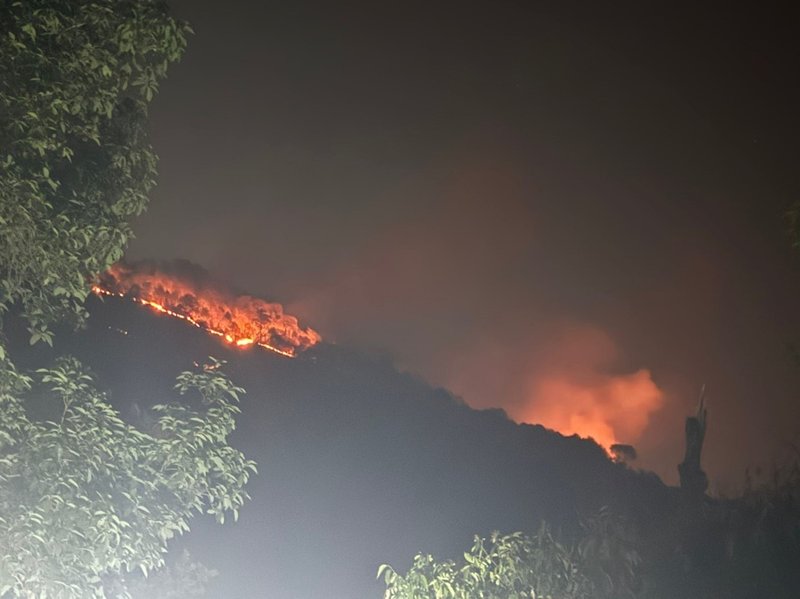'Out of the hottest fire comes the strongest steel'
Peter Waddup, CEO - The Leprosy Mission Great Britain
I have been so privileged to accompany my colleagues in Asia and Africa on their daily duties. Firstly as a volunteer and, for the past seven years, as Chief Executive of The Leprosy Mission. I always love my time on the hospital wards. Seeing the medics interact with the patients as they tend to their clinical needs is joyful. I have been so blessed to travel with them to remote areas where they set up pop-up clinics to cure people of leprosy. They have also welcomed me on outreaches to leprosy communities. There I have discovered more of the needs and obstacles faced by people affected by the disease. Each and every visit is unique and feels like a fresh revelation! Without fail, I leave in awe of the skills of my colleagues and the compassion they show to everyone they meet.
Back in Peterborough we hear news from Asia and Africa each day. Unfortunately the news is often alarming. We receive updates from our teams working in the most challenging of conditions. Many times they have been at the forefront of natural disasters, including earthquakes. Each year there is an increase in climate-exacerbated disasters. Cyclones, famines and flooding are now becoming part of the course. Yet each disaster wreaks havoc on a fresh group of people living in the communities we serve. Then there is war and terrorism. We have staff members who have been physically attacked and even shot at. Their precious lives are frequently subjected to extreme danger, all in the line of duty.
This week I have been at our flagship hospital in the foothills of the Himalayas in Nepal. Anandaban Hospital stands proudly on a hillside, a beacon of light to people with leprosy. This is all thanks to our incredible supporters. I was privileged to accompany a group of nine of our dedicated UK supporters to Anandaban. I was so excited to show them the lifechanging difference their gifts are making. However the visit didn't go quite to plan!

Wildfires are fairly common in the forest surrounding Anandaban. We were told that there had been a high number of forest fires in the weeks leading up to our visit. So I tried not to feel unduly worried when taking this photo of the surrounding forest on Monday night. Sher, the hospital administrator, had assured us the blaze was still a couple of days away. Yet, as a precaution, he said we should be accompanied to the hospital guest house. He told us the flames can flush out local wildlife from the forest. As the wildlife includes cheetahs and tigers, I felt grateful to be escorted to my room!
First thing on Tuesday morning we saw Sher who looked exhausted. He was alerted by the authorities in the night that the blaze had spread. Flames were now licking the edges of the site and he had spent most of the night preparing for an evacuation.
We asked what we could do to help. Sher told us the patients needed to be moved to the other side of the hospital site, as far from the blaze as possible. There were a couple of old unused wards that needed preparing quickly. Our UK supporters immediately rolled up their sleeves and began disinfecting the wards. After we had finished we were told there was little more we could do. We were advised to move to the nearby city of Kathmandu. There we prayed for the safety of the patients and staff, as well as God's hand of protection on the hospital.
It was a tense wait. We were so relieved to hear from Shovakhar, the Country Leader of The Leprosy Mission Nepal late that afternoon. He had been out in the forest with the firefighters and members of the Nepali armed forces. The fire had proved extremely difficult to bring under control. The flames had even jumped a firebreak they had put in place. Yet, miraculously, they stopped close to the edge of the hospital site. We thanked God for his goodness.
It then struck me that while we had witnessed an alarming incident, it was all in a day's work for the team at Anandaban. In an echo to the 2015 earthquakes which killed 9,000 people in Nepal, they put patient safety above their own. They simply responded calmly to the situation before them. The patients were fed and cared for while a plan was put in place to transport them away from the hospital. We were so thankful this wasn't needed.
Later that day I realised it was quite extraordinary that I'd only seen my overseas colleagues in their day jobs. Despite hearing of the many curve balls they face, this was the first time I had seen them juggle their work with a major incident. (And referring to a major wildfire as a curve ball is certainly an understatement.)
The old Chinese proverb says 'out of the hottest fire comes the strongest steel'. When I close my eyes I can still see the flames engulfing the forest, crackling at the edges of the hospital site. Yet for our incredible teams globally, adversity like this is taken in their stride. It's all in the line of duty and simply part of life's rich tapestry. The difficulties soon pass and life quickly moves on. As I write this blogpost I realise quite how thankful I am for their tenacity and steadfastness.